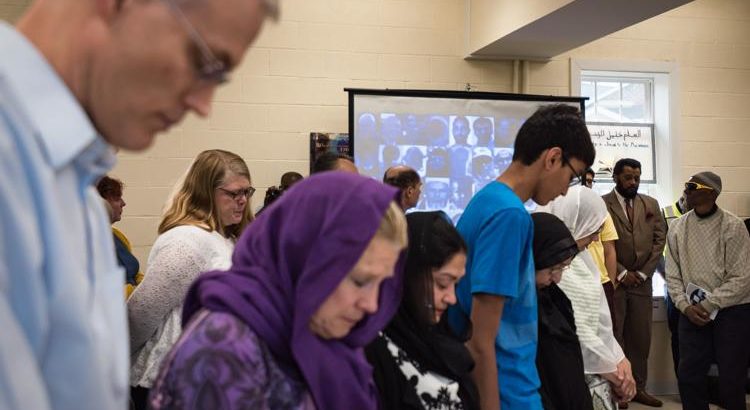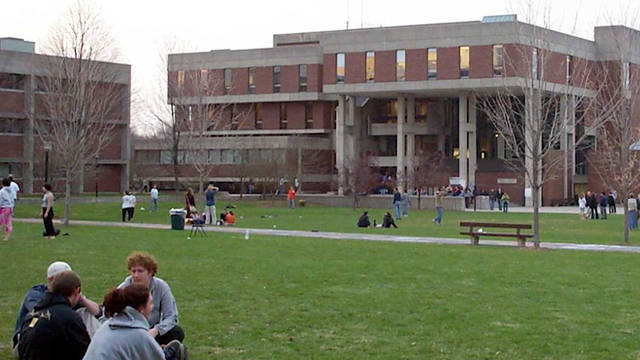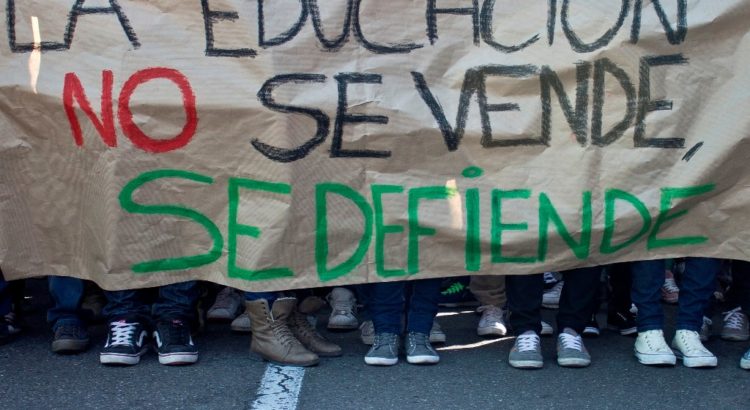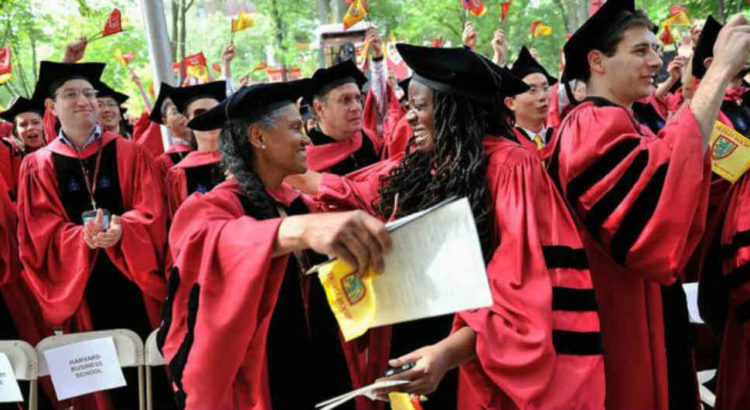América del Sur/ Colombia/ 18.03.2019/ Fuente: www.semana.com.
Un grupo de estudiantes de California presentó una demanda contra ocho prestigiosas universidades de Estados Unidos, a las que acusan por no haber hecho un proceso justo de admisión.
Aún faltan cuatro años, pero más de 43.300 estudiantes aplicaron ya para entrar a Harvard en 2023.
Pero la prestigiosa universidad solo tendrá espacio en sus clases para poco más de 1.600 de ellos: apenas el 3,7% de los aspirantes.
Y Harvard no es el único lugar donde pasa. Más de 35.300 estudiantes enviaron sus formularios para estudiar en Yale en 2022 y solo el 6% de ellos fueron aceptados; mientras en Princeton, solo el 5% fue admitido para el mismo año.
Según una reporte de la Asociación Nacional de Consejería Universitaria (Nacac) de Estados Unidos, cerca del 80% de las universidades del país aceptan a más de la mitad de sus postulantes, pero en las escuelas más renombradas del país la historia es otra.
Datos del Departamento de Educación de Estados Unidos indican que las cifras de admisión allí son inferiores al 20%, como promedio, y que solo el 4% del total de estudiantes en edad universitaria son admitidos en alguna institución de élite.
Entrar a estas universidades implica para muchos aspirantes -y para sus padres- años de esfuerzo y sacrificios.
Pero el complicado proceso de ingreso a los centros de educación superior ahora está bajo la lupa.
Un grupo de estudiantes de California presentó el miércoles una demanda contra ocho prestigiosas casas de estudio de Estados Unidos, a las que acusan por no haber hecho un proceso justo de admisión.
La controversia se desató luego de que una investigación del FBI acusara a varios millonarios, entre ellos las actrices Felicity Huffman y Lori Loughlin, de presuntamente participar en un amplio mecanismo de fraude y sobornos para que sus hijos ingresaran a algunas universidades de renombre.
Yale, Stanford, Georgetown, la Universidad de Texas, la del Sur de California, la de Wake Forest o la de California en Los Ángeles fueron solo algunas de las instituciones salpicadas por el esquema de corrupción.
El FBI descartó que las escuelas tuvieran alguna participación en el mecanismo de fraude, pero para muchos fue una nueva constatación de cómo las personas más ricas buscan diferentes formas para colocar a sus hijos en algunas de las universidades más renombradas de Estados Unidos.
En criterio Richard Reeves, analista del Brookings Institute, un think thank con sede en Washington, lo sucedido fue «simplemente el signo más visible de un problema mayor: el oscuro y complejo entramado de las admisiones a las universidades de Estados Unidos».
Pero ¿cómo es el proceso para entrar a las universidad de élite en Estados Unidos y por qué genera polémica?
Los métodos convencionales
De acuerdo con Myroone Simpson, directora de consejería universitaria de la escuela Oak Hall de Florida, la forma de solicitar el ingreso en la mayoría de las universidades de élite no es muy diferente, en principio, a la de cualquier otra.
Casi todas requieren un formulario de solicitud, un ensayo personal, cartas de referencias, documentos que avalen logros académicos, estados de cuenta de banco y el pago por la postulación.
Whitney Bruce, una consultora educativa independiente, le explica a BBC Mundo que cada universidad puede tener procesos diferentes, sin embargo, la mayoría de los estudiantes deben de sobresalir en dos elementos que darán, en alguna medida, crédito de su excelencia.
Se trata del llamado GPA, el promedio de calificaciones, y un examen de aptitudes académicas, conocido como SAT.
Pero de acuerdo con Simpson, dado el alto nivel de competitividad para entrar a estos centros de élite, casi todos utilizan criterios selectivos que van más allá de lo meramente académico.
«Lo que la mayoría de las universidades están buscando son estudiantes que cumplan con una mirada más holística, no solo lo académico, sino también que demuestren qué tienen para ofrecer más allá de sus buenas calificaciones», señala a BBC Mundo.
Es entonces cuando actividades extracurriculares, la participación en programas caritativos, proyectos sociales y toda suerte de eventos que muestren interés social o capacidad de liderazgo se vuelven relevantes.
También, explica Bruce, muchas universidades buscan a estudiantes con aptitudes atléticas para sus equipos deportivos, lo que también puede favorecer su selección.
De acuerdo con Simpson, estos elementos extracurriculares se han vuelto criterios de primer orden para muchas escuelas, al punto que en algunas son tan o más decisivos que los exámenes tradicionales.
Según cifras oficiales, Harvard rechaza a uno de cada cuatro estudiantes con puntajes perfectos en el SAT, mientras otras como la Universidad de Pennsylvania y la de Duke lo hacen con tres de cada cinco con impecables calificaciones.
Críticos del sistema cuestionan que esto ha conllevado a que otras evaluaciones más subjetivas -y otros criterios menos convencionales- entren también a consideración.
Los «admisión hereditaria»
En su libro «The Diversity Bargain», la investigadora Natasha Warikoo asegura que los mecanismos para admitir estudiantes en las universidades de élite de Estados Unidos han favorecido que sea los hijos de las personas más ricas quienes tengan más posibilidades de clasificar.
En ese sentido, uno de los hechos que más se han criticado en los últimos años es un factor que se denomina «admisión hereditaria».
«Algunas universidades toman en cuenta como un factor positivo el hecho de que los padres de los estudiantes tuvieran una relación anterior con la universidad«, explica Simpson.
Expresidentes de Estados Unidos como George W. Bush o John F. Kennedy, ambos hijos de graduados de Harvard, fueron admitidos en esa universidad aunque sus promedios de calificaciones no eran los mejores.
Bruce, por su parte, aclara que no es necesariamente un factor determinante, pero asegura que las estadísticas señalan que los estudiantes cuyos padres estudiaron previamente en la universidad, tienen más posibilidades de ser admitidos que los que no.
Según una demanda contra Harvard, la tasa de aceptación para «estudiantes heredados» es aproximadamente del 33%, en comparación con una tasa de aceptación general de menos del 6%.
En otras, como Yale, Princeton, Georgetown y Stanford la tasa de aceptación para este tipo de estudiantes está entre el doble o el triple del promedio de admisión general.
Las universidades niegan que discriminen a los estudiantes por su origen.
De acuerdo con Bruce, el hecho de que se de prioridad a que los padres hayan sido aceptados lo que implica es que la universidad puede comprobar qué aspirante ha tenido contacto con las tradiciones del centro previamente a través de su familia.
Las donaciones
«El precio de la admisión», un libro del investigador estadounidense Daniel Golden sobre cómo los más ricos de Estados Unidos son favorecidos en las universidades de élite revela que otro elemento que influye en la aceptación de un estudiante es la relación financiera de sus padres con la universidad. Es decir, cuánto dinero dan.
Y es que muchas universidades de Estados Unidos dependen en gran medida de las donaciones de sus benefactores como fuentes de financiación.
Así, es muy común caminar por los campus y encontrar edificios con el nombre de millonarios o de sus familiares, vivos o fallecidos, que ofrecieron grandes cantidades de dinero a la universidad o que contribuyeron con la financiación para la construcción de centros de estudios, bibliotecas, etc.
Según Golden, el hecho de que un rico done grandes cantidades para alguno de los proyectos de la universidad puede ser también un pase para que sus descendientes sean admitidos en alguna de sus facultades.
Un escándalo en ese sentido envolvió a Jared Kushner, yerno del presidente de Estados Unidos, quien fue aceptado en Harvard poco después de que su padre donara US$2,5 millones.
Aunque Kushner y su familia negaron que la donación haya tenido influencia en su aceptación, un funcionario de la secundaria a la que asistió confesó que sus créditos académicos no validaban su pase a Harvard.
«No hubo forma de que nadie en la oficina administrativa de la escuela pensara que, por méritos, entraría en Harvard», señaló.
Bruce, sin embargo, considera que el factor de las donaciones como mecanismo de entrada a la universidad que depende de cada institución académica y de la relación que tengan los multimillonarios con la misma.
«Puede que sí pase y puede que no. Es una cuestión que depende de muchas relaciones. Tiene que ver con la relación que tiene la persona con la institución y lo que la institución desee hacer con la relación con esa persona», señala.
El esquema ilegal
Pero si los mecanismos anteriores son totalmente legales ante la ley de Estados Unidos, los que reveló el FBI esta semana mostraron un paso más allá.
Según explicó el Departamento de Justicia, en esta ocasión se trataba de un mecanismo de sobornos y fraudes, que se realizaban a través de una empresa que asesoraba a los estudiantes para ser admitidos en la universidad, llamada Edge College & Career Network.
La investigación señala que el dueño de la compañía, William «Rick» Singer, supuestamente instruía a sus clientes para facilitar los fraudes en los exámenes de ingreso.
Presuntamente les pedía a los padres que se pusieran en contacto con la universidad y que dijeran que sus hijos tenían cierta discapacidad o que tenían otro evento que les impedía presentarse el día de las pruebas para todos los aspirantes.
De esta forma, los estudiantes hacían los exámenes en instalaciones específicas, donde ya la empresa de Singer había sobornado al personal para que les permitieran hacer trampas, que iban desde copiar hasta dejar que otras personas tomaran el examen en nombre de los candidatos.
Otros mecanismos incluían que los funcionarios soplaran las respuestas o incluso corrigiera lo escrito en los exámenes durante el proceso de revisión.
La firma de Singer, según el FBI, sobornó también a varios entrenadores de equipos para que admitieran algunos candidatos aunque no tuvieran ninguna aptitud deportiva y para que hicieran creer al resto del equipo que se trataba de la persona correcta.
El Departamento de Justicia lo consideró el mayor escándalo de fraude en la historia de Estados Unidos.
Pero Reese opina que la gran diferencia entre estos mecanismos y los otros para beneficiar a los hijos de los ricos es que unos están amparados por la ley y los otros no.
Pero, ambos fallan, en su criterio, desde una perspectiva moral.
Fuente de la noticia: https://www.semana.com/educacion/articulo/universidades-de-elite-en-eeuu-como-se-entra-a-estos-centros-de-estudio-y-como-fue-el-mayor-escandalo-de-fraude-educativo-en-la-historia-del-pais/605531















 Users Today : 29
Users Today : 29 Total Users : 35459495
Total Users : 35459495 Views Today : 37
Views Today : 37 Total views : 3417795
Total views : 3417795